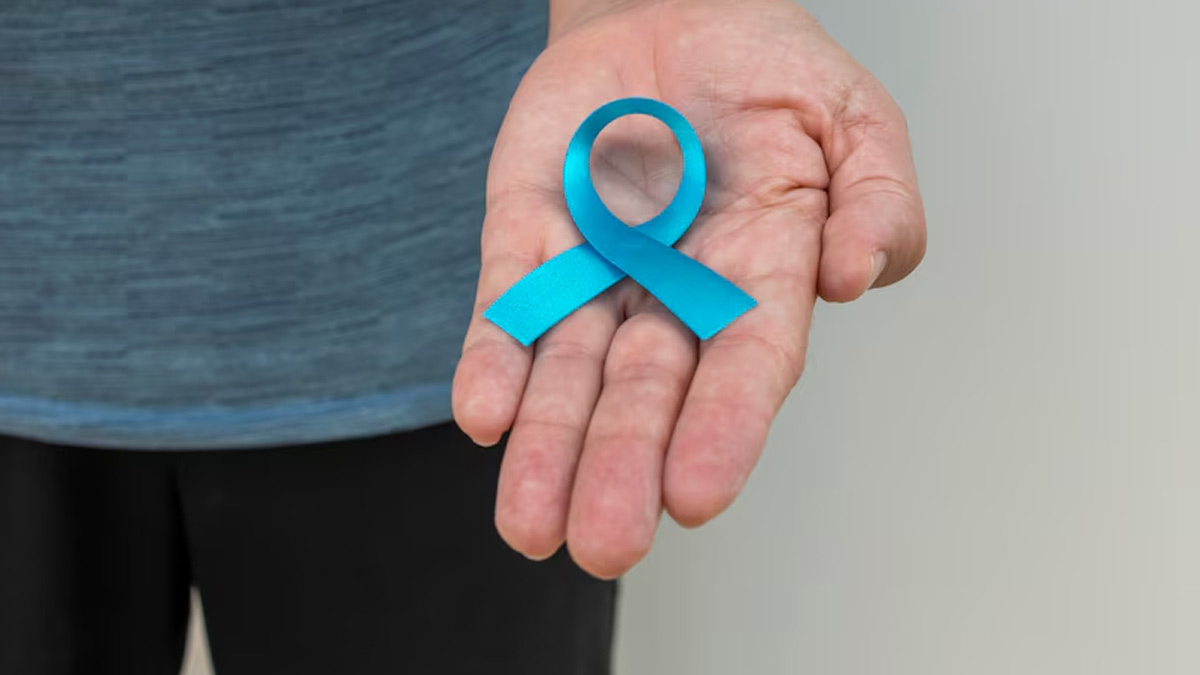
Testicular cancer is a type of cancer that occurs in the testicles which are responsible for producing sperm and testosterone in the male reproductive organs. This cancer is common among younger males. The most common sign to look for is a painless lump in the testicle.
Table of Content:-
To know more about testicular cancer and its early warning signs, OnlyMyHealth interacted with Dr Nitin Shrivastava, Senior Consultant – Urology, Kidney Transplant Program and Robotic Surgery at Artemis Hospital Gurugram.
According to a study published by the National Cancer Institute, testicular cancer most often begins in germ cells, the cells that make sperm. It is rare and is most frequently diagnosed in men ages 20 to 34. However, Dr Shrivastava said, “Treatment options for this condition generally include surgery to remove the affected testicle, along with chemotherapy or radiation therapy, depending on the stage and type of cancer.”

Causes Of Testicular Cancer
Dr Shrivastava said that the exact causes of testicular cancer aren't fully understood, but several factors may contribute to its development. “One major risk factor is undescended testicles, where one or both testicles fail to move from the abdomen into the scrotum before birth. Furthermore, a family history of testicular cancer or personal history of testicular cancer in one testicle increases the risk.”
Furthermore, he said, “Exposure to certain environmental factors or toxins may also be responsible to some extent. However, most cases of testicular cancer occur in individuals without any known risk factors.”
Also read: Testicular Cancer: Doctor Explains Why It Is Important To See Beyond Embarrassment
Early Signs Of Testicular Cancer
Testicular cancer is curable if diagnosed early. Here are some early warning signs of testicular cancer listed by Dr Shrivastava.
1. Lump or swelling: The most common early sign is the presence of a painless lump or swelling in one of the testicles. This may come to light during self-examination or while showering.

2. Testicular pain or discomfort: Some men may experience pain or discomfort in the affected testicle or the scrotum. This discomfort may range from mild to severe and may come and go.
3. Change in size or shape: A visible change in the size, shape, or consistency of the testicle may indicate a problem. It could appear larger, smaller, or feel harder or softer than usual.
4. Heaviness in the scrotum: A feeling of heaviness or fullness in the scrotum, often without a specific lump being felt, can be a warning sign of testicular cancer.
5. Back pain or abdominal pain: In some cases, testicular cancer may cause pain in the lower back or abdomen, specifically if the cancer has spread to nearby lymph nodes or organs.

6. Fluid buildup in the scrotum: Accumulation of fluid in the scrotum, called hydrocele, can sometimes accompany testicular cancer, causing swelling and discomfort.
7. Breast enlargement: Although this is rare, sometimes testicular cancer can produce hormones that cause breast enlargement or tenderness in affected people, a condition called gynecomastia.
Also read: Testicular Cancer: How To Know If The Cancer Has Spread?
Why Should Men Be Aware Of Testicular Cancer

Although testicular cancer is rare in comparison to other types of cancer, men need to be aware of it because of its potential seriousness and the importance of early detection.
Dr Shrivastava said, “Testicular cancer is highly treatable, especially when diagnosed early. Ignoring symptoms or neglecting regular self-examinations can lead to the cancer spreading and becoming more difficult to treat.” Furthermore, testicular cancer often affects younger men, generally between the ages of 15 and 35, so awareness and self-examination are necessary for this demographic.
By being informed and proactive, men can increase their chances of successful treatment and long-term survival. Testicular cancer is one of the cancers which many times can be completely cured even in advanced stages. However, early detection and treatment increase the chances of cure drastically.
Also watch this video
How we keep this article up to date:
We work with experts and keep a close eye on the latest in health and wellness. Whenever there is a new research or helpful information, we update our articles with accurate and useful advice.
Current Version